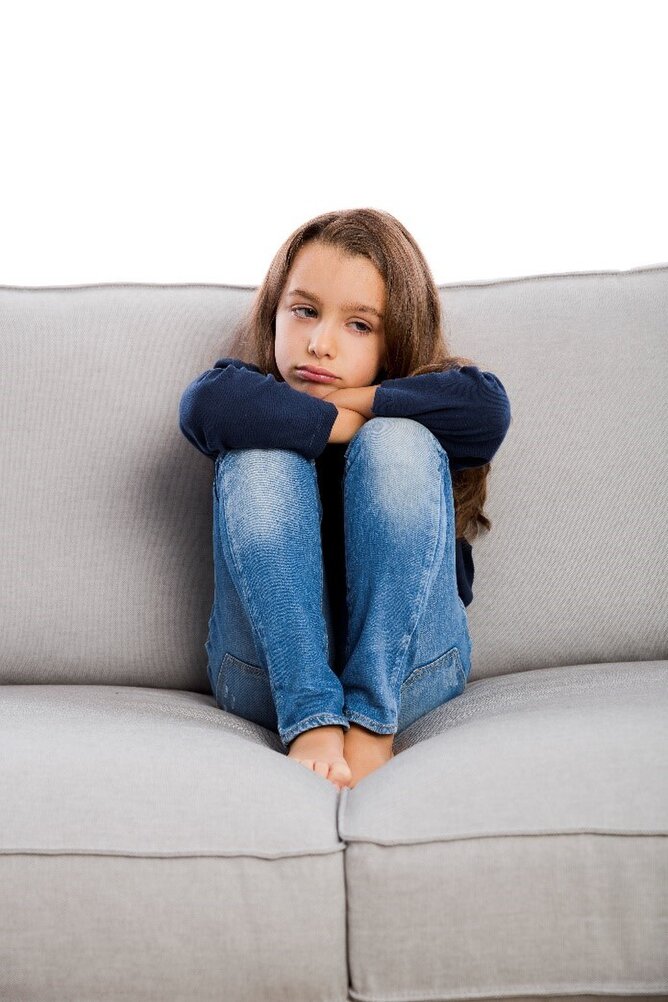Fathers Day
Its Father’s Day later this month, so we all at Teenage Mental Health thought it would be a good idea to highlight the importance of fathers in children email wellbeing.
Fathers play a vital role in the mental and emotional well-being of their children. Studies have shown that children with involved fathers have better outcomes in areas such as self-esteem, academic performance, and mental health. In this blog post, we will explore some of the positive effects that fathers have on their children's mental health.
One of the most significant ways that fathers contribute to their children's mental health is through their involvement in their children's lives. Children with involved fathers are more likely to have a positive self-image, higher self-esteem, and better social skills. This is because fathers often provide a sense of security and stability for their children, which helps to build their self-worth and confidence. Additionally, fathers who are actively involved in their children's lives tend to have a more positive relationship with their children, which can lead to better communication and problem-solving skills.
Another way that fathers contribute to their children's mental health is by providing emotional support. Children who have fathers who are emotionally available and responsive tend to have better emotional regulation and lower levels of stress. This is because fathers often serve as a sounding board for their children, allowing them to express their feelings and work through any emotional challenges they may be facing. Fathers who are emotionally available and responsive tend to have a more positive relationship with their children, leading to better communication and problem-solving skills.
Fathers also play an important role in the cognitive development of their children. Studies have shown that children with involved fathers tend to have better academic performance and cognitive skills. This is because fathers often provide a stimulating and nurturing environment for their children, which helps to promote cognitive development. Fathers being more involved in their children's education can support a more positive relationship with their children, again this can lead to better communication and problem-solving skills and support encouraging a child’s relationship with academic studies more positively.
Lastly, fathers also play an important role in the physical health of their children. Children with involved fathers are more likely to have a healthy lifestyle and be physically active. This is because fathers can often set a positive example for their children, encouraging them to be physically active and make healthy food choices. Additionally, fathers who are involved in their children's physical health tend to have a more positive relationship with their children, which can lead to better physical health for their children which will support healthier mental wellbeing, self-esteem and social skills.
In conclusion, fathers can play an essential role in the mental and emotional well-being of their children. Children with involved fathers tend to have better outcomes in areas such as self-esteem, academic performance, and mental health. This is because fathers provide a sense of security and stability, emotional support, cognitive development, and physical health for their children. So, it's important for fathers to be actively involved in their children's lives and to be there for them emotionally and physically.
Wrong Trousers Day
On the 24th of this month it is Wrong Trousers Day globally.
This day was inspired by the Oscar winning characters Wallace and Gromit. Wrong trousers day is all about paying £1 for the right to look wrong wearing the wrong trousers to help improve the quality of life for children in hospices around the UK.
The whole team at Teenage Mental Health will be taking part in this event on Friday the 23rd of June and will have a collection pot on reception with all funds going to EACH.
We will also be selling cakes in reception so please feel free to pop into reception and join in or make a donation.
Top tip
Take time to laugh, hang out with a funny friend, watch a comedy, or check out cute videos online. Laughter helps reduce anxiety.
How? Well, there’s a science to it!
When something makes us laugh, it triggers a series of positive changes in the brain. First, it activates the release of endorphins, natural chemicals that induce feelings of pleasure and reduce pain perception. These endorphins interact with receptors in the brain, creating a sense of euphoria and relaxation.
Laughter also increases the production of neurotransmitters like dopamine and serotonin, which play a crucial role in regulating mood and emotions. As a result, laughter promotes a sense of happiness and decreases anxiety by dampening stress responses and enhancing overall well-being. These neurological responses contribute to the positive impact of laughter on our mental and emotional states.
Fun Fact
Therapy and self-help are a waste of time. Why bother when you can just take a pill?
Fact: Treatment for mental health problems varies depending on the individual and could include medication, therapy, or both. Many individuals work with a support system during the healing and recovery process. So only one thing like a pill, will not always be enough for many, and the same one thing, such as a pill, isn’t going to work for same for each individual if at all.
Pride Month
June is Gay Pride Month, a time to celebrate and acknowledge the contributions and rights of the LGBTQ+ community. One important aspect of the LGBTQ+ community is the need for individuals to be open and honest about their sexuality. Being open about one's sexuality can have a significant impact on one's mental health.
Many individuals who identify as LGBTQ+ struggle with feelings of isolation and rejection due to societal stigmatization and discrimination. This can lead to negative mental health outcomes such as depression, anxiety, and self-harm. However, when individuals are able to be open and honest about their sexuality, they often experience an improvement in their mental health.
Being open about one's sexuality allows individuals to form connections and relationships with others who understand and accept them. It also allows individuals to be their authentic selves, which can lead to a greater sense of self-acceptance and self-esteem. When individuals feel accepted and valued for who they are, it can have a positive impact on their overall well-being.
Additionally, being open about one's sexuality can also help to break down societal stereotypes and discrimination. When more people are open about their sexual identities, it can help to create a more inclusive and accepting society for all individuals, regardless of their sexual orientation.
Gay Pride Month is an important time to celebrate and acknowledge the contributions and rights of the LGBTQ+ community. It's also an important reminder of the importance of being open about one's sexuality and the impact it can have on one's mental health. Being open about one's sexuality allows individuals to form connections, to be their authentic selves, and can lead to a greater sense of self-acceptance and self-esteem. It also helps to break down societal stereotypes and discrimination towards the LGBTQ+ community.
Summer Holidays are one term away!
The summer holidays for those with children can be great for some, sometimes they add to the to do list of things to do or think about. For those unsure what to do, here are some helpful ideas for parents and carers who may be dreading the summer holidays:
1. Plan ahead: Create a rough schedule or itinerary for the summer holidays. Include a mix of activities, outings, and downtime to keep everyone engaged and prevent boredom.
2. Explore local attractions: Research nearby parks, museums, libraries, and other attractions that offer summer programs or activities for children. Many places provide special events or workshops during the holidays, offering fun and educational opportunities and they don’t all require payment, but some may require booking in advance.
3. Encourage outdoor play: Take advantage of the warmer weather and longer days by encouraging outdoor activities. Plan picnics, bike rides, nature walks, or visits to local playgrounds. Outdoor play promotes physical activity, stimulates creativity, and provides a change of scenery.
4. Arrange playdates: Arrange playdates with other parents, family, or friends in the neighbourhood. This allows children to socialise, build and maintain friendships, and engage in cooperative play. It also gives the adults some time for themselves, or to socialise with other adults which is a little bit of good self-care for you too!
5. Embrace creativity: Encourage your children to explore their creative side. Set up an art station with supplies for drawing, painting, or crafting. Encourage them to write stories, create plays, or make homemade movies. Engaging in creative activities fosters imagination and helps children develop important skills. Having a creativity box with some resources handy can help tackle the “I’m bored” moments.
6. Introduce new hobbies: Use the summer holidays as an opportunity to introduce your children to new hobbies or interests. Consider activities like gardening, cooking, photography, or learning a musical instrument, there’s even apps you can find to encourage physical activities such as walking to search for things. This can be a great way to spark their curiosity and expand their skillset.
7. Stay active and healthy: Incorporate physical activities into the summer routine. Encourage sports, swimming, or even family-friendly exercise routines. Good nutrition and plenty of sleep are also essential for maintaining a healthy balance during the holidays.
8. Balance structured and unstructured time: While it's important to plan activities, it's also crucial to allow for unstructured time. Let your children have periods of free play, allowing them to explore their interests and take the lead. Unstructured time fosters independence, creativity, and problem-solving skills.
Remember, every family is unique, so adapt these ideas to suit your children's interests and your family's needs. The key is to find a balance between planned activities and downtime, ensuring an enjoyable and fulfilling summer break for both parents and children.
"I'm Bored"
Yes, many of us looking after children need to get ready for this wonderful line in the school holidays, or generally. Remember it’s typical and healthy for a child to get bored, it engages their imagination and problem-solving skills.
Encourage them to find ways to fill the space or boredom. It’s challenging to hear “I’m bored” even if your child is surrounded with many possible things they can do. You can make helpful suggestions, but these may appear to just not be what they want to do.
It's important to acknowledge your child’s boredom still, as for some it can be somewhat anxiety provoking, or relatable to other feelings they may not know what to do with.
You can do or say is something like:
Acknowledge: “Sounds like you don’t know what to do, which seems difficult”?
Normalise: “It’s okay to be bored, do you want some help thinking of what to do”
Think they want something else? “Do you know what you can do”?
Or encourage something creative followed by: “I can’t wait to see what you do decide to do”.





